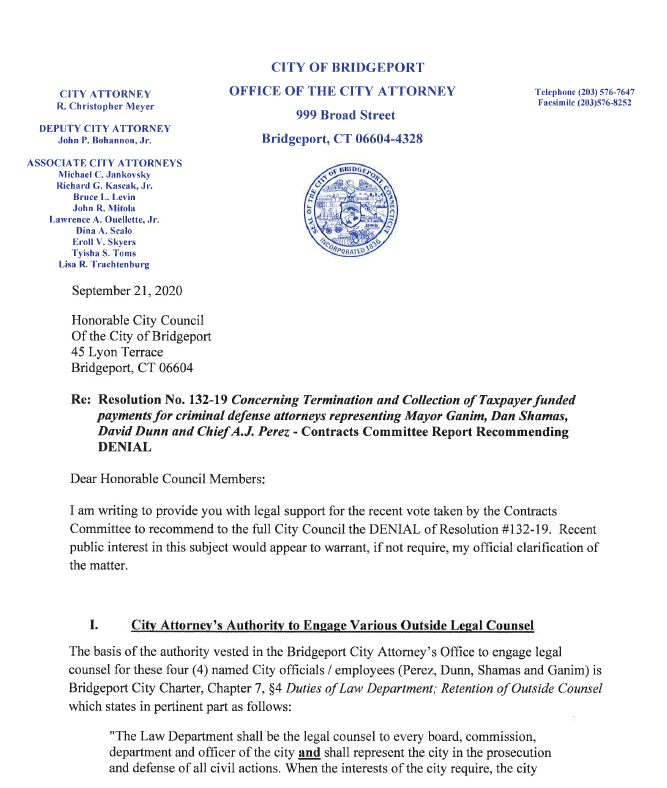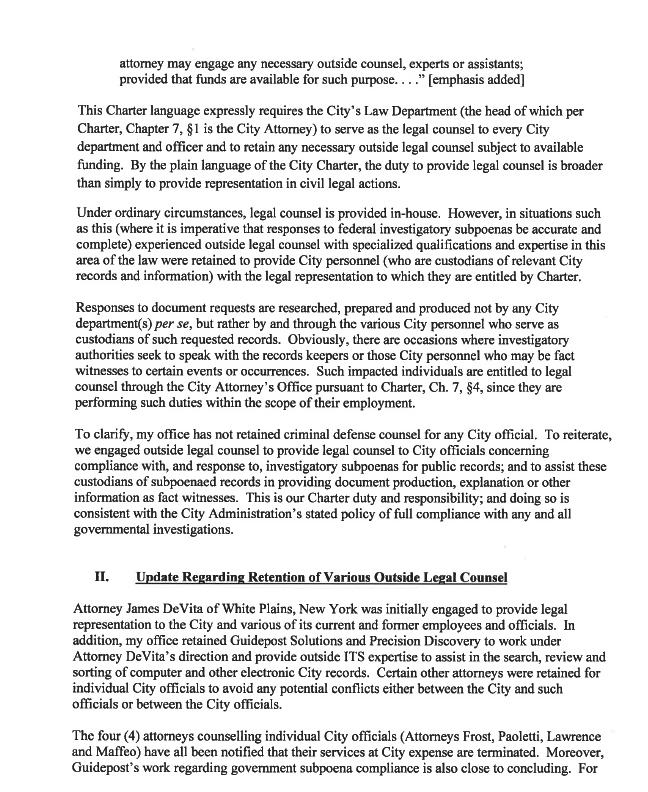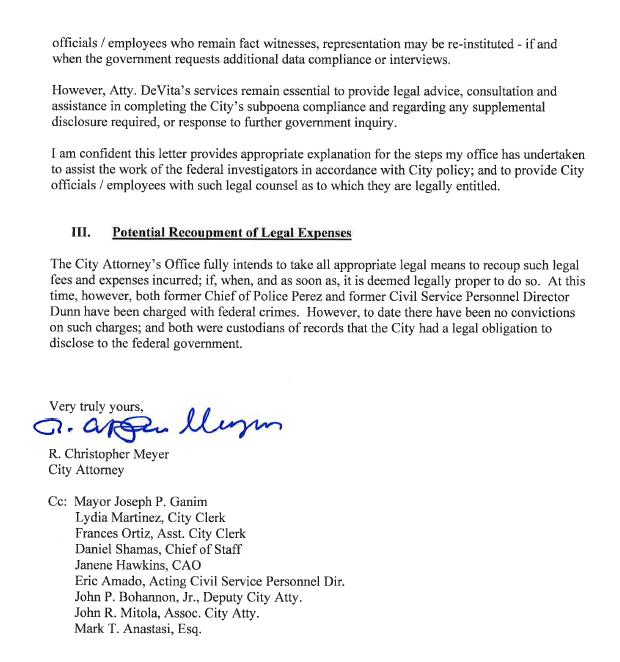City Attorney R. Christopher Meyer issued a legal opinion on Monday addressing the legal fees taxpayers have covered–to date more than $600,000 and counting–for the federal government’s investigation into the rigging of the police chief exam that has netted two charges so far against former Chief AJ Perez and ex Personnel Director David Dunn.
Legal opinion below, but … first question: why are taxpayers on the hook for this? When the criminal division of the United States Attorneys Office issues subpoenas for records they are not civil actions, as the city attorney suggests in his support of taxpayers paying the legal expenses of Perez, Dunn and others. So why should taxpayers be responsible?
Now that Perez and Dunn have been charged criminally and resigned from city service, Meyer says taxpayers are no longer covering their legal expenses. Fair enough, that makes sense. But …
Second question, why did the city execute agreements with outside law firms for taxpayers to cover city employee legal expenses when the attorney-client privilege was between the outside lawyers and city employees? Isn’t that like covering private legal fees? Of course.
Third question: no one on staff of the City Attorney’s Office, among one dozen lawyers, is qualified to handle this work responding to demands for federal records?
And so it goes …





What about the retainer?
I remember in high school I has a teach who used to say that when it came to grading papers he would take the stack of paper and throw them down his basement stairs.
The ones that made it all the way down to the basement would get an F because they were weighted down with all of the BS.
This legal opinion would make it to the subbasement with all of the BS packed into it.
As Maria pointed out a legal opinion is based on case law and trial history.
This has no case law or trial history. Ergo it’s BS. He did it because he was told to.
And what is the purpose of CC’ing all of the people he did if not to assure them they they would be afforded the same benefit.
More to follow I am sure.
Now that Perez and Dunn have been charged criminally and resigned from city service, Meyer says taxpayers are no longer covering their legal expenses. Again, what about the retainer, how much does this case truly cost the taxpayers?
While we are on the subject the Bridgeport Police Department I would like to share this article from the “New Haven Independent” concerning New Haven’s police commission and I ask you to compare New Haven to Bridgeport and you tell me who’s looking out for their taxpayers.
https://www.newhavenindependent.org/index.php/archives/entry/police_commission2/
Mike Lawlor, who helped Connecticut change its approach to criminal justice, has been tapped to help New Haven figure out how best to police itself, as a member of the city’s Board of Police Commissioners.
Meanwhile, New Haven has new requirements for its commissioners.
Mayor Justin Elicker has nominated Lawlor, a former prosecutor and state representative and top gubernatorial aide, to serve on the commission.
Lawlor is a former co-chair of the state legislature’s Judiciary Committee and a former state undersecretary for criminal justice policy and planning who played a critical role in pushing for former Gov. Dannel Malloy’s “Second Chance Society” legislation. He also helped craft “Project Longevity,” a federal-state-city law enforcement effort that has helped reduce violence in New Haven by targeting young people most at risk for being involved in violence, then offering them a choice between help going straight and long prison sentences. Lawlor, who lives in Morris Cove, is currently an associate professor who teaches about criminal justice at the University of New Haven.
If approved by the full Board of Alders later this fall, Lawlor would join on the commission Tracey Meares, a Yale Law School professor and national police reform expert whom Elicker appointed and the alders confirmed this summer.
Also on Monday night, the alders approved an ordinance amendment that requires that new police commission members complete mandatory training within six months of joining the board.
That training includes a ride-along with a city officer, a familiarization with de-escalation and use of force policies and procedures, and an overview of the police department’s Internal Affairs division.
Latin: Bovem de stercore!